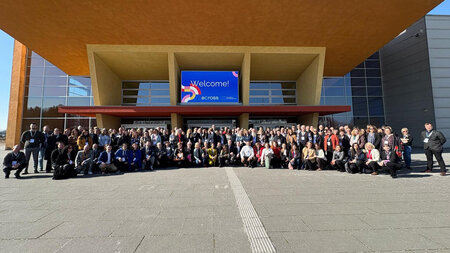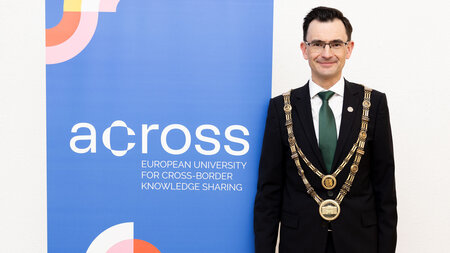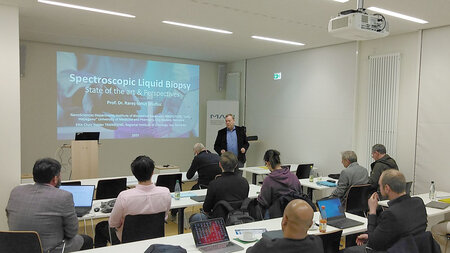Expert Network on Inclusion in Schools Established at the TU Chemnitz
The Professorship of General Psychology and Biopsychology provides scientific support to Saxony’s inclusion assistant project for the next five years
-

Stefan Uhlig (l.), Dr. Andreas David and Prof. Dr. Udo Rudolph turn their focus to inclusion in Saxony’s schools. Photo: Stephanie Laux
Since August 2016, inclusion assistants have been working in selected schools of all levels in Saxony. They provide support to teachers in combined learning environments for children with and without disabilities, and assist with learning and integration processes both within and outside of the classroom environment. Around 51 million euros drawn from the European Social Fund and federal resources have been made available for the employment of around 180 inclusion assistants through the 2020/2021 academic year. The goal is to provide additional long term support to inclusion processes in schools.
The Saxon inclusion project will receive scientific support from the Professorship of General Psychology and Biopsychology over the entire duration. “We are studying the education processes in practice and are also creating a platform for a Saxony-wide exchange between all inclusion assistants, their sponsors, the Saxon State Ministry of Education and Culture and the TU Chemnitz research team,” explains Prof. Dr. Udo Rudolph, Professor of General Psychology and Biopsychology. The research proposal makes an important contribution to the quality management of the comprehensive “Inclusion Assistant” project.
The Chemnitz-based psychologists will constantly analyze all of the project’s processes. “We are also observing the individual developments of the students who are learning in these inclusive settings,” says project director Dr. Andreas David. The central focus here is on the socio-emotional competencies of the students receiving direct support from the program. In addition, their academic performance, learning behaviors and attitudes toward learning will be assessed. “Besides that, the satisfaction of everyone involved in this project is an essential prerequisite for its success,” continues project team member Stefan Uhlig. “In order to draw reliable conclusions about all of the processes and developments over the course of the project, these factors will be analyzed by both quantitative and qualitative research methods” assures Prof. Rudolph.
By remaining in close contact with those involved, the researchers hope to initiate continuous improvement processes. Regular conferences and meetings are planned to facilitate the sharing of experiences, which in turn will create a transparent knowledge base that is as broad as possible. All program components are coordinated at the TU Chemnitz via an online platform. This is available to the participants throughout the entire course of the program, and serves as a central communication and information platform. “The result of our scientific monitoring will be the development of a competency model for inclusion assistants,” says the TU Chemnitz psychology professor. He continues: “As a result, an expert network on inclusion in Saxony’s schools will be established at the TU Chemnitz.”
The project will also incorporate the professorship’s many years of research as well as practical and transfer experience regarding integrative learning, supporting children’s emotional and social development, supporting children with unique behavioral or performance-related needs and inclusion in schools. The five-year research project at the TU Chemnitz will receive around 586,000 euros in funding from the European Social Fund and from federal resources.
Project homepage (in German): https://www.tu-chemnitz.de/hsw/psychologie/professuren/allpsy2/Inklusionsassistent/Forschung_Inklusionsassistent.php
More information is available from Prof. Dr. Udo Rudolph, Telephone +49 371 531-36394, E-Mail udo.rudolph@psychologie.tu-chemnitz.de, as well as from Dr. Andreas David, Telephone +49 371 531-37357, E-Mail andreas.david@psychologie.tu-chemnitz.de.
Mario Steinebach
20.09.2016





